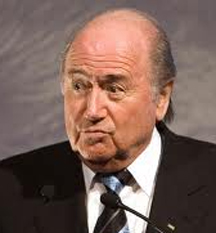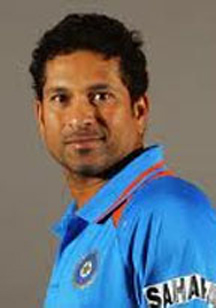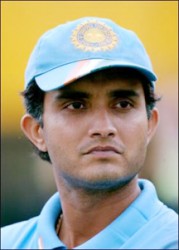MUMBAI, (Reuters) – A new franchise-based soccer league with celebrity owners will kick-off in India later this year but not everyone is convinced that it will help lift the country out of the lower echelons of the world game.
Spanish club Atletico Madrid, former cricketers Sachin Tendulkar and Sourav Ganguly as well as top Bollywood actors are among the owners of eight franchises in the Indian Super League (ISL), which will run from mid-September to the end of November.
Cricket-obsessed India languishes at 145th in the world rankings, a state of affairs that has prompted FIFA president Sepp Blatter to dub the country of 1.2 billion the “sleeping giant” of world soccer.
While the promoters are confident the ISL will revolutionise soccer in India in much the same way as the similarly named cricket league has done in the nation’s favourite game, not everybody is on board.

The owners of current national champions, Goa-based I-League club Churchill Brothers, are among the fiercest critics of the new tournament, believing it will do more harm than good.
“How do you even call it a league? You need at least six months to term yourself a league,” chief executive Valanka Alemao told Reuters.
“And in any country who play the World Cup, have you ever heard of something so stupid and ridiculous as this tournament?
“I’m someone who will call a spade a spade. I’ll fight it tooth and nail. They want to kill the sleeping giants even before waking it up.”
CELEBRITY OWNERS
The ISL is promoted by India’s Reliance Industries, controlled by the country’s richest man Mukesh Ambani, Rupert Murdoch’s Star India TV and sports management group IMG, which is also the marketing partner of the All India Football Federation (AIFF).
According to tournament organisers, franchises paid about $25 million for a team for 10 years in the ISL, which will have a fair presence of the country’s film industry in the form of actors Salman Khan, Ranbir Kapoor and John Abraham as co-owners.
“Celebrity owners and all is great but football in our country requires a lot of dedication and a lot of hard work,” Alemao, whose family own the Churchill Brothers club, added.
“I don’t think these celebrities have even watched Indian football. If the structure was good, I would have been the first to support it.”
AIFF officials are confident such concerns can be easily addressed.
The sport’s governing body said they have asked franchises to invest in infrastructure, grass-root and youth football development and believe the money on offer will inspire youngsters to take up soccer as a profession.
“Indian football had somewhat stagnated. Nothing great was happening and we were not progressing at the desirable rate,” AIFF vice-president Subrata Dutta told Reuters.
“We have been hovering between 140 and 160 in rankings for many years now and we needed something big to push us forward.
“We at the AIFF felt that an explosion is needed in Indian football. We felt the ISL would give the necessary push to Indian football, it would make a difference.”
The standard of competition and the quality of the foreign players playing in the tournament will be crucial, he added.
GOOD STARTER


Many are not convinced that two leagues can co-exist but Dutta assured that the ISL will not diminish the existing competition.
“It will be like a curtain-raiser for the I-League, like a good starter and a good soup before the spectators are served the main course in the form of the I-League,” Dutta said.
The stakeholders believe the tournament, if presented, packaged and promoted properly, will add sorely needed entertainment value and glamour to the game.
Soccer writer Jaydeep Basu, whose “Stories From Indian football” is an anecdotal history of the game in the country, does not doubt the league’s success but is sceptical of how much it will benefit Indian football.
“Anyone who’s trying to say that it will help Indian football in improving the standards is wrong,” Basu said.
“It might bring back spectators to the ground and encourage more youngsters. It should be a commercial success in a few years.
“But Indian football will remain where it is. If you could revolutionise the game with a two-month tournament then countries from Middle East would have done it many years ago.
“They would have won many World Cups by now. Nobody has the kind of money they have.”
Soccer in India remains popular only in certain areas, while the appetite for the televised game is restricted to the English Premier League or Spain’s La Liga.
FIFA has signed a 10-year agreement to develop the game in the world’s second most populous nation and the IMG Reliance joint venture are four years into a 15-year deal as the commercial partner of the AIFF, which is worth 7 billion rupees ($116.26 million).
“That India needed it (ISL) is a hoax. Who needed it? The marketing and broadcasting partners of the AIFF maybe,” Basu added.
“The I-League has not been returning any money for the partners.
“The ISL is a business opportunity, they want to make their money back through this. So I am ready to agree if you tell me it’s a good chocolate, but don’t tell me chocolate is healthy.”
